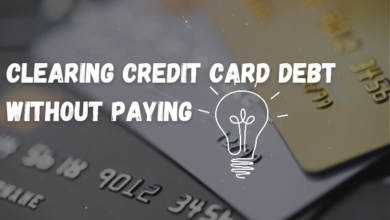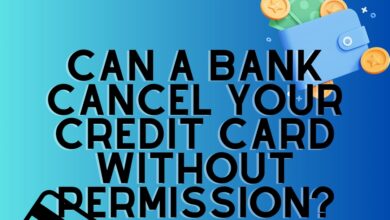What Happens When Banks Close Credit Cards
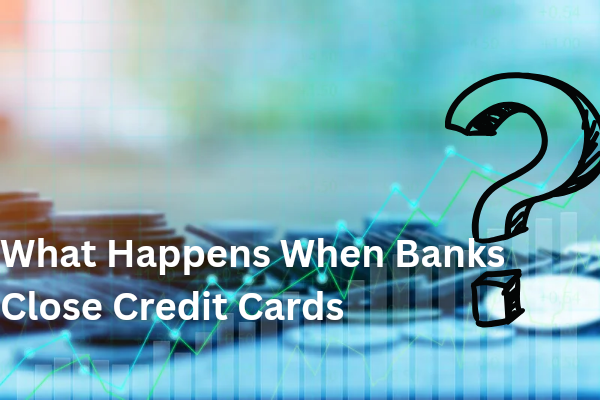
I had gone out that evening, taking my girlfriend for dinner at a fancy restaurant, it wasn’t payday yet so I had to use my surest back up.
After we had a nice meal, I brought out my credit card to pay for the food we had eaten and it declined. After the fourth trial, my girlfriend opted to pay and I began to wonder what had happened.
I logged into my credit card account and found out it had been blocked by the bank, Banks reserve rights to freeze accounts for various reasons per the card agreements.
I had been caught off guard by sudden credit shutdowns, and my finances faced turmoil and I began to fear how much financial restrictions I’d had to deal with for the next couple of days.
I needed to find the answer to my question so I can be mentally prepared for what is to come.
It is important as a credit card holder to be informed and understand the common catalysts for abrupt account closures and how to handle the fallouts.
So Keep reading to learn what happens when banks suspend credit privileges so that you and I can prepare accordingly.
Table of Contents
Account Closure Triggers
It is important to know the reason why the bank can deactivate your card even if payments stay current
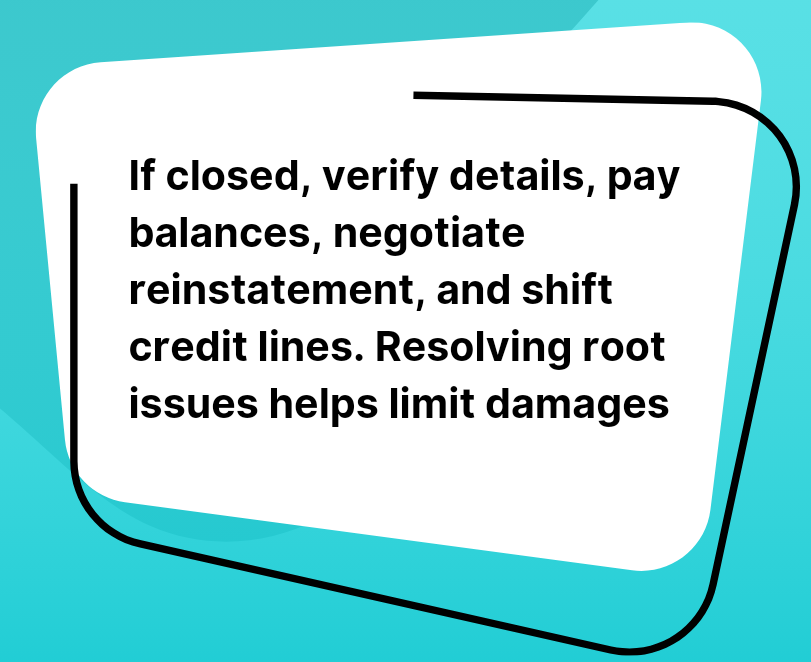
Review common reasons behind involuntary account freezes below:
- Non-Payment and Delinquency
Failure to pay minimum amounts due is the leading culprit for frozen accounts. Exactly how long banks can allow before pulling the plug for lack of payment next gets discussed.
- Suspected Fraud
When the card companies suspect unauthorized charges or account takeover attempts they immediately block all transactions until resolving the issues.
This they do with the intention to protect your account but we must admit that it causes headaches if legitimate.
- Credit Risk Changes
When the credit score of an account suddenly drops through new debts or errors, that may prompt computer risk models to automatically flag accounts for closure review.
The Human reps afterwards determine restrictions.
- Policy Violations
When a credit card user breaks the major cardholder terms regarding appropriate card use, it can fast track account termination.
These terms include criminal transactions or allowing unauthorized people access to the card itself or account number.
- Credit Account Inactivity
If you Go a long period without any card transactions or payments, the banks can close accounts due to dormancy.
But what defines periods of inactivity might surprise you so read the terms of your issuer carefully .
Now that you know why banks deactivate accounts, it’s time to know what consequences emerge from suddenly suspended credit card privileges.
Impacts of Credit Card Account Closure
Once a bank freezes your credit card functionality, even temporarily, significant ripples spread impacting card convenience, credit scores, outstanding debt, and more. Be aware of how sudden credit card lockouts cause:
- Lack of Access to Available Credit
The most obvious yet painful effect comes from getting cut off from any remaining open credit limit on the canceled card just like I experienced.
This sure hurts in emergencies if you count on available funds.
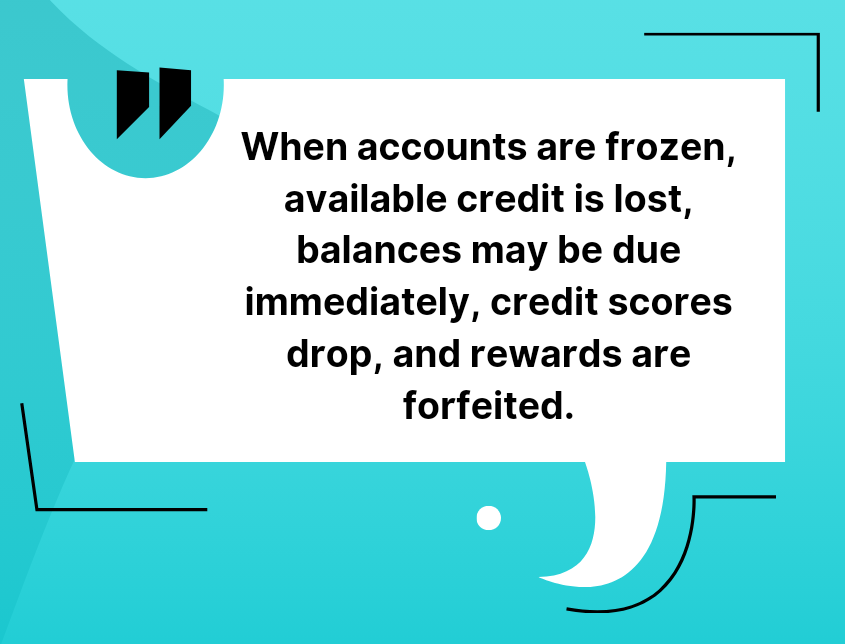
- Balance Repayment Demands
Even when the bank only temporarily freezes the card itself, the account closure often triggers immediate repayment demands of outstanding balances.
This accelerates the due dates to pay off the existing card debts.
- Credit Score Dings
It is unfortunate that any credit account closure shows in your history and drops your credit scores until balances get paid as agreed.
Defaults or late pays tank scores further – up to 250 points until it is resolved!
- Lost Reward Points
it’s not a novelty that Banks Links reward points, miles, or cashback earnings directly to active accounts in good standing. So if your account is Terminated, you lose access to those unused rewards funds unless arrangements are made to transfer.
You’ll agree with me that Getting blindsided by account closure delivers a multifaceted blow.
Well Now that you know what happens post-closure, It is important to know what you can do immediately when you notice your account has been frozen.
Responding to Credit Account Suspension
Suppose you attempt a routine card transaction only to find unexpected rejection indicating account lockout or closure.
How do you get to the bottom of the freeze and seek access restoration?
Here are constructive next steps you can take:
- Verify Closure Details
You need to Confirm if the card blockage means temporary freeze versus permanent cancellation by calling card support lines. Ask why the actions were taken and on what dates changes were enacted. Take fast action once closure is confirmed before your balances spiral.
- Fulfill Payment Demands ASAP
If you are issued repayment of outstanding card debts immediately after the closure, make sure you prioritize clearing APR-accruing balances so charges can stop. Default risks lose available options.
- Negotiate with Creditor
You need to Research consumer defense laws on improper account cancellation rights. And then Leverage on those provisions plus your good history with the company to discuss your account reinstatement options with creditor supervisors.
- Shift Credit Lines if Needed
If you Get left overly reliant on the now deactivated credit, Call other card issuers or banks where you hold accounts to shift available credit lines around or request convenient emergency funding access in the interim until you regain card privileges.
While very few options exist preventing surprise account closures proactively, acting swiftly post-closure at least reduces damages you’ll have to deal with.
How Long Before Card Closure for Non-Payment
A common catalyst causing unwanted account suspensions that you need to note is that it comes from consistent late or missing credit card payments.
So it is important to know how long do payment problems continue before banks terminate accounts.
General payment delinquency timelines before credit account closure unfold as follows:
- 30 Days Overdue
This is Flagged as 1 payment past due. And Penalized with higher fees and potential jumps in interest rates but your account will stay open.
- 60 Days Overdue
This is Marked severely delinquent after missing 2 payment cycles. Default risk means penalty APRs around 30 percent kick in making your balances swell faster. Closure watch triggers.
- 90 Days Overdue
When you go 3 months without mandatory minimum payments means the account will get closed for non-payment default. Outstanding balance demands payment in full immediately. Further transactions would be blocked.
Sometimes following just one 30-day delinquency, subsequent statements may declare accounts closed or canceled. But usually consumers are given 60 days leeway to resolve overdue debts before account termination.
Banks however must mail written notices explaining reasons for account restrictions 21 days before taking such actions per Fair Credit Billing Act laws.
But when you stay more than 90 days past due, and they will absolutely close accounts for non-payment default.
What Happens When Credit Card Debt Goes Unpaid
It is obvious that Payment delinquencies prompt account suspension. But you might want to ask, what if you leave outstanding card balances still owed after involuntary closure?
Consequences of unpaid credit card debts turned over to collectors include:
- Harsh Collection Calls and Letters
You should Expect frequent calls from collectors demanding balance payoffs once accounts get sent to collections.
And some possible letters of threat of legal action or asset seizure without immediate payment which raises stress.
- Tanked Credit Scores
If you have Unpaid credit card debts, it is equivalent to severe derogatory marks that deduct 100+ points from credit scores instantly with escalating subtraction as delinquency ages over 180 days without resolution.
- Legal Judgments Against You
After 6 months attempting voluntary collection lacking payment, creditors can sue you for enforcement of debts owed. So it is normal to Expect court orders mandating wage garnishment or property seizure until you pay.
- Long-term Credit Borrowing Loss
When you have Flagged risks with unpaid collections and judgments on record practically guarantee denial for new credit cards, loans, mortgages, financing as long as neglected debts languish.
It has been made Clear that severe generational damage emerges across finances and credit reports when post-closure card balances avoid repayment. So you need to act urgently when accounts get closed with remaining money due.
Now that you understand why maintaining a credit account matters. But what if you avoid risky behavior and want to keep a card long term, however find yourself at risk of closure simply due to card inactivity over time?
What Happens When Inactive Credit Cards Close
Did you know most card issuers state rights to terminate accounts going unused too long? Without periodic account activity, banks lack ways of evaluating risk profiles on dormant accounts.
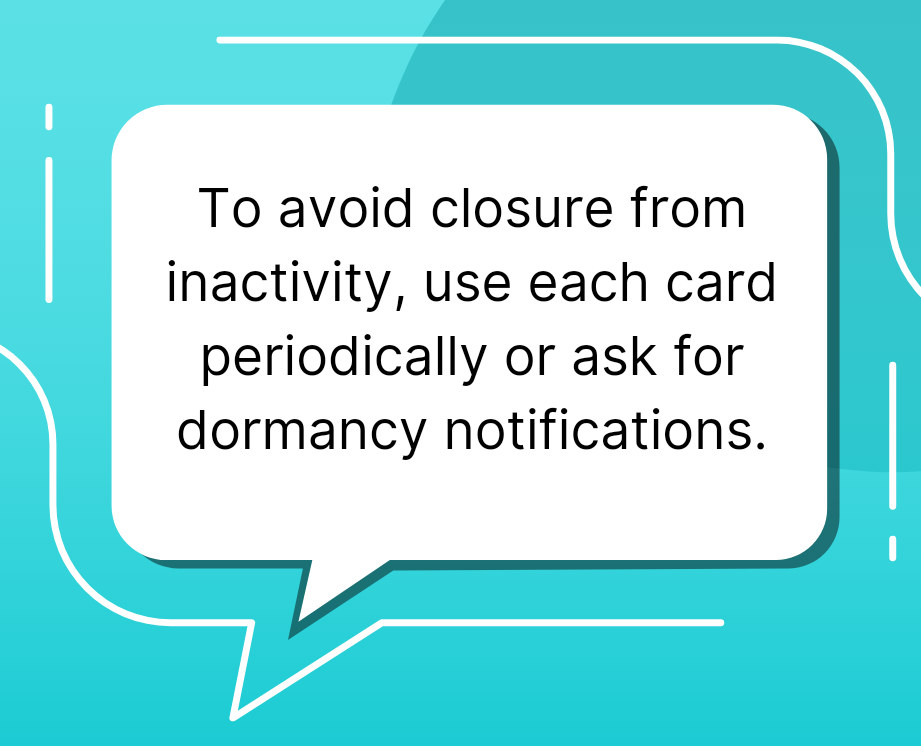
Now the question is, how long exactly before lack of credit card use causes unwanted account closure?
Generally expect closure due to dormancy when no new charges, payments, or balance activity hit accounts for 12 to 18 consecutive months.
And if closures for inactivity occur, you risk the following inactive account consequences:
- A Sudden lack of credit access or liquidity from previously available credit limits
- You experience Loss of longevity history improving credit record over time resulting in potential score dips
- You’ll Miss opportunities earning ongoing rewards through points, miles or cashback
- Lack of transaction monitoring flags fraud sooner on unused compromised numbers
It is advisable to Avoid unnecessary inactive closure risks by setting calendar alerts to use each card periodically.
Or You can contact issuers directly requesting account notifications before they shut down dormant accounts.
That way you prevent fund access loss when you need money most by keeping cards reasonably active.
You can watch this video:
Conclusion
Credit card accounts see closure against your will for various reasons – non-payments topping the list followed by fraud concerns or cardholder policy violations.
Dormant unused accounts also have the risk of being shut down eventually.
The best thing to do is Immediately address closure causes, seek creditor negotiations notifying you beforehand of restrictions.
You need to Continuously meet lending obligations once Closure is involuntarily canceled and shift any depending credit access temporarily.
When you resolve root closure, it ultimately helps regain account access where worthy or restore credit stability minimizing lasting damages.


